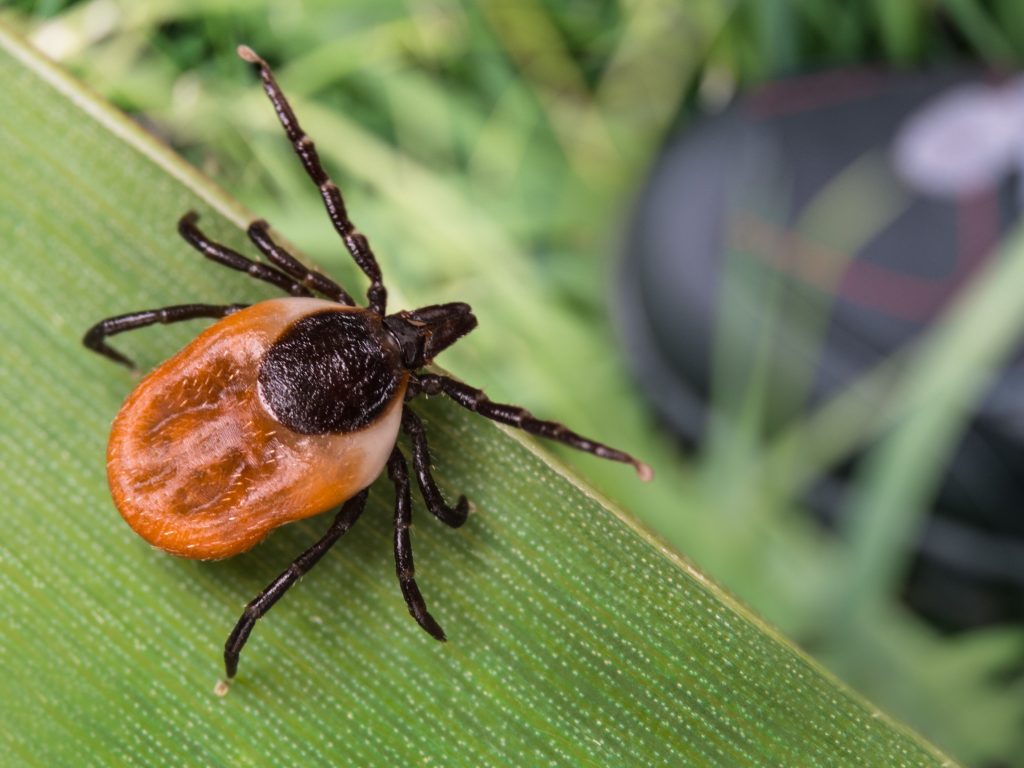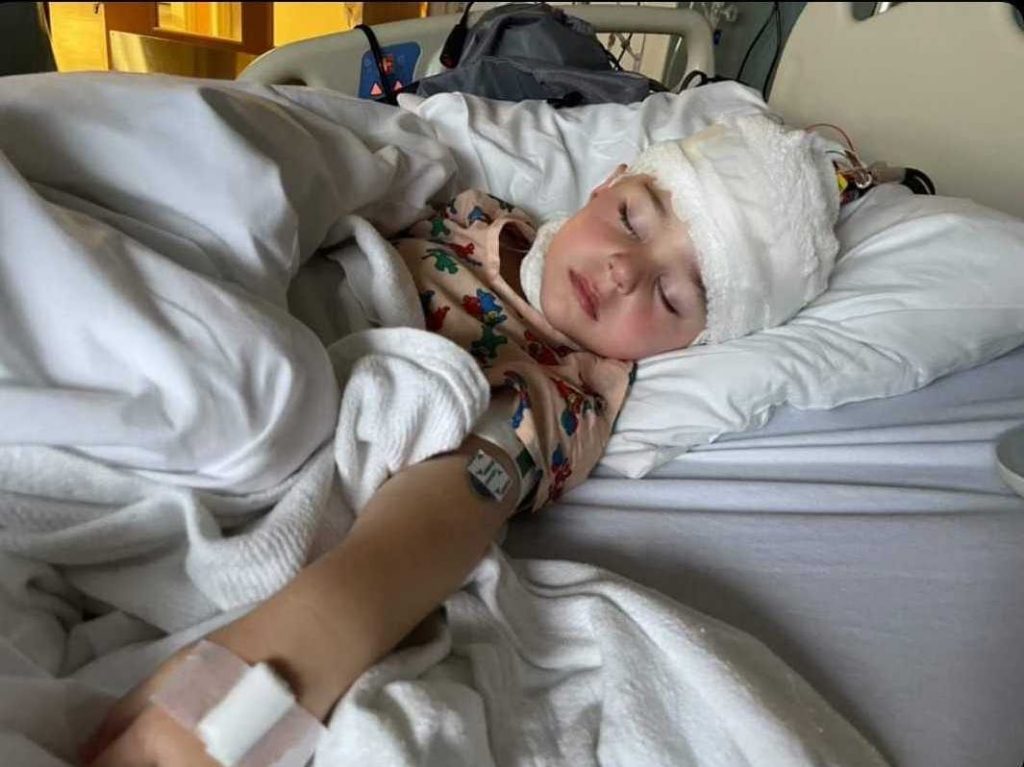- A toddler caught a rare, potentially deadly, tick-borne virus, and now one side of his body is limp.
- Two weeks after a tick bite, he was hospitalized with a headache and fevers of over 104 degrees.
- The boy was diagnosed with Powassan virus disease, and treated with an unproven antibody treatment.
A toddler in Pennsylvania caught a rare, tick-borne virus while swimming in a neighbor's pool, and is now limp on the left side of his body, according to news reports.
Jonny Simoson, 3, was in good health when his mom, Jamie, spotted a live tick lodged in his right shoulder, she told the New York Post. Simonson told the Post that she easily removed the tick with a pair of tweezers within 15 minutes, leaving a "tiny red bump."
However, two weeks later he started complaining of headaches, became unusually drowsy, and had fevers of over 103 degrees, Simoson said, per the New York Post.
After two visits to a pediatrician, Simoson took Jonny to the emergency room. The next 12 days were a blur of MRI and CAT scans, a spinal tap, antibiotics and antivirals, as doctors investigated the cause of his symptoms, first in a general ward then in pediatric intensive care. Eventually, after ruling out other causes doctors diagnosed him with meningoencephalitis caused by the Powassan virus, Simoson wrote in a blog post.
"It was so frustrating searching for an answer. We were terrified that we might not be coming home with our child," Simoson said, per the New York Post.
Powassan virus, spread by deer ticks, is rare
People catch the Powassan virus from infected blacklegged ticks, also known as deer ticks. It is typically diagnosed by testing spinal fluid.
Data suggests between six and 39 cases are reported to the CDC each year, mostly in northeastern states and the Great Lakes region in the late spring, early summer and mid-fall when deer ticks are most active.
Most people don't get any symptoms, but the virus can cause confusion, loss of coordination, difficulty speaking, and seizures if it infects the brain or its membranes.
Around 1 in 10 people that get severe illness from Powassan virus disease die, and about half that survive are left with long-term loss of muscle and strength, according to the Centers for Disease Control and Prevention.
Meningoencephalitis, Jonny's diagnosis, is a serious condition when the brain, and the thin tissues surrounding it, get inflamed.

Jonny received an antibody treatment
There are no proven medications for Powassan virus disease, so most people with severe disease are treated in hospital with supportive measures, including fluids through a drip into the vein and oxygen.
However, Jonny was treated with five doses of disease-fighting antibodies from blood donors, a treatment called intravenous immunoglobulin (IVIG), which has been used to treat lupus and children with heart conditions.
Dr. Swathi Gowtham, a pediatric infectious disease specialist in Danville, Pennsylvania who was involved in the case, told CBS Philly that Jonny responded "very well" to the treatment he was given.
"Whether it is due to IVIG, I cannot really say, more studies need to be done" on the use of IVIG for Powassan virus, she said.
Jonny was discharged home after 12 days, but he was limp on one side of his body and needed physical rehab and speech therapy. According to the New York Post, his parents had to teach him how to eat and drink again.
"Jonny was still not walking, and his balance was poor," Simoson wrote. "We knew we had a ton of work to do but were up for the challenge," she said.
"We're really confident that the progress that he has made will just continue," Simoson told CBS Philly.

